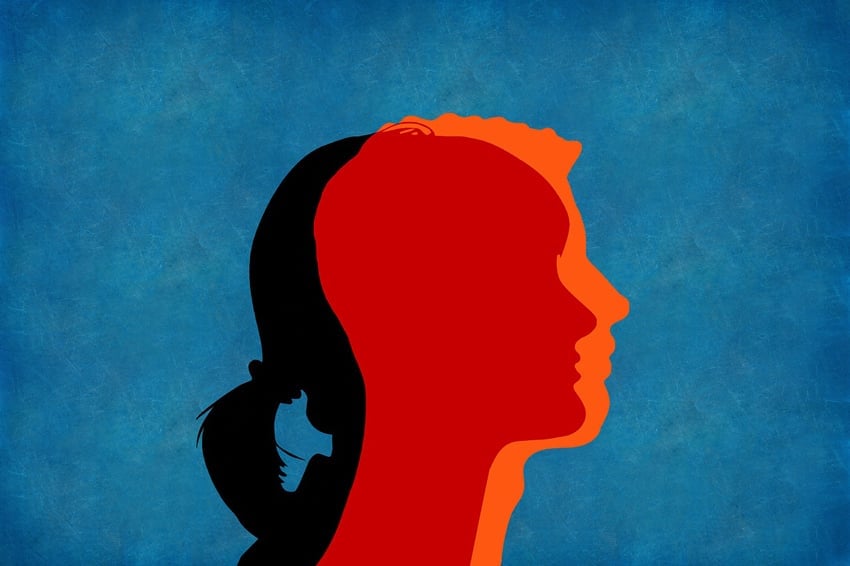 The front cover of last week’s Catholic Weekly was probably the most dramatic front page in a while, and it was dramatic for a reason: we were reporting the most blatant attack on religious freedom we have ever seen in this country.
The front cover of last week’s Catholic Weekly was probably the most dramatic front page in a while, and it was dramatic for a reason: we were reporting the most blatant attack on religious freedom we have ever seen in this country.
In order to push a radical, unquestioned LGBTIQ agenda, the Andrews Government is threatening anyone who encourages or supports another person to live in accordance with Christian sexual ethics – even through prayer or preaching – with 10 years’ imprisonment and up to $200,000 in fines.
The Andrews Government’s sinister and cynical attack on people of faith is only part of the story, though. It is also an attack on children who experience gender dysphoria, and the egregious nature of this attack became apparent just hours after The Catholic Weekly went to print.
“the Andrews Government is threatening anyone who encourages or supports another person to live in accordance with Christian sexual ethics – even through prayer or preaching – with 10 years’ imprisonment and up to $200,000 in fines.”
On Tuesday, UK time, the UK High Court handed down a decision in Bell v Tavistock, a case that considered the policy and practices of the Gender Identity Development Service (Gender Service) in dealing with children as young as 10 years of age who present with gender dysphoria.
Medical interventions given or referred by these and similar clinics usually occur in three stages: the first is the administration of puberty blockers to pre-pubescent children to suppress the onset of puberty; the second is the supply of cross-sex hormones that make a child to develop the physical characteristics of the opposite sex; and the third is surgery to remove breasts or genitalia.
The High Court found many surprising and even alarming aspects of the Gender Service’s practice.
Firstly, the Court expressed surprise at the lack of records kept about the children given puberty blockers. The Gender Service could not provide to the court collated data of the ages of the children who were treated in the last ten years, or data on the proportion of children treated who had also been diagnosed with Autism Spectrum Disorder (there is a high prevalence of autistic conditions in those who present with gender dysphoria), or even how many children who were given puberty blockers ended up also choosing to take the cross-sex hormones.
Also surprising was that the Court was provided with a paper written in 2014 by the Director of the Gender Service that “noted that there was no overall improvement in mood or psychological wellbeing using standardised psychological measures” for the children treated.
This was a very important admission by the Gender Service’s director.
The Court noted that gender dysphoria “has no direct physical manifestations,” but that the treatment offered has “direct physical consequences.” If there is no physical reason for the treatment (because the underlying condition is not physical) and no psychological improvement from the treatment, then it is extraordinary that these children are still being pumped full of drugs.
The Court said that because there is “real uncertainty over the short- and long-term consequences of the treatment with very limited evidence as to its efficacy or indeed quite what it is seeking to achieve,” it is properly described as an “experimental treatment.”
It went on to say that in order to be capable of giving informed consent to such experimental treatment, a child would have to understand: the immediate physical and psychological consequences of the treatment; the unknown physical consequences of taking puberty blockers; the fact that puberty blockers set a child on a pathway to cross-sex hormones and surgery that may lead to a loss of fertility and sexual function; the impact such a decision may have on future relationships; and the fact that there is no real evidence for offering the treatment at all.
The Court decided that it is highly unlikely that any child under the age of 13 would be able to understand this, and that it was doubtful that even a child under 16 could do so. This lack of understanding, the Court said, could not be cured with just giving the child more information, because there is a limit to a child’s ability to conceptualise notions of adult relationships, sexual function and procreation.
In other words, no matter how hard gender activists try, children are not in a position to make decisions about these things, and they should not be allowed or encouraged to do so.
This would come as a huge shock to the Gender Clinic, as it could not give the Court even one example of a child they did not give puberty blockers to because they could not understand. If I can be cynical for a moment, it will soon enough also come as a shock to their profitability.
What does all this have to do with Victoria?
Under the Change or Suppression (Conversion) Practices Prohibition Bill 2020, if a child presents with gender dysphoria, the only thing a parent, counsellor, doctor, or anyone else is allowed to do is to affirm their gender identity and assists them to consider or undergo a gender transition. They are not permitted to suggest that a child not be subject to the treatments the UK High Court has just described as experimental, with unknown physical consequences, and with no evidence base.
Victoria is giving parents no option other than to present their kids for experimental treatment, backed by the threat of 10 years in prison if they object.
Vulnerable children are the collateral damage in Dan Andrews’ ideological war with religious groups over sexual morality, vulnerable children are the collateral damage. Who is the person really engaging in “bigoted quackery,” Mr Andrews?
Related articles:
